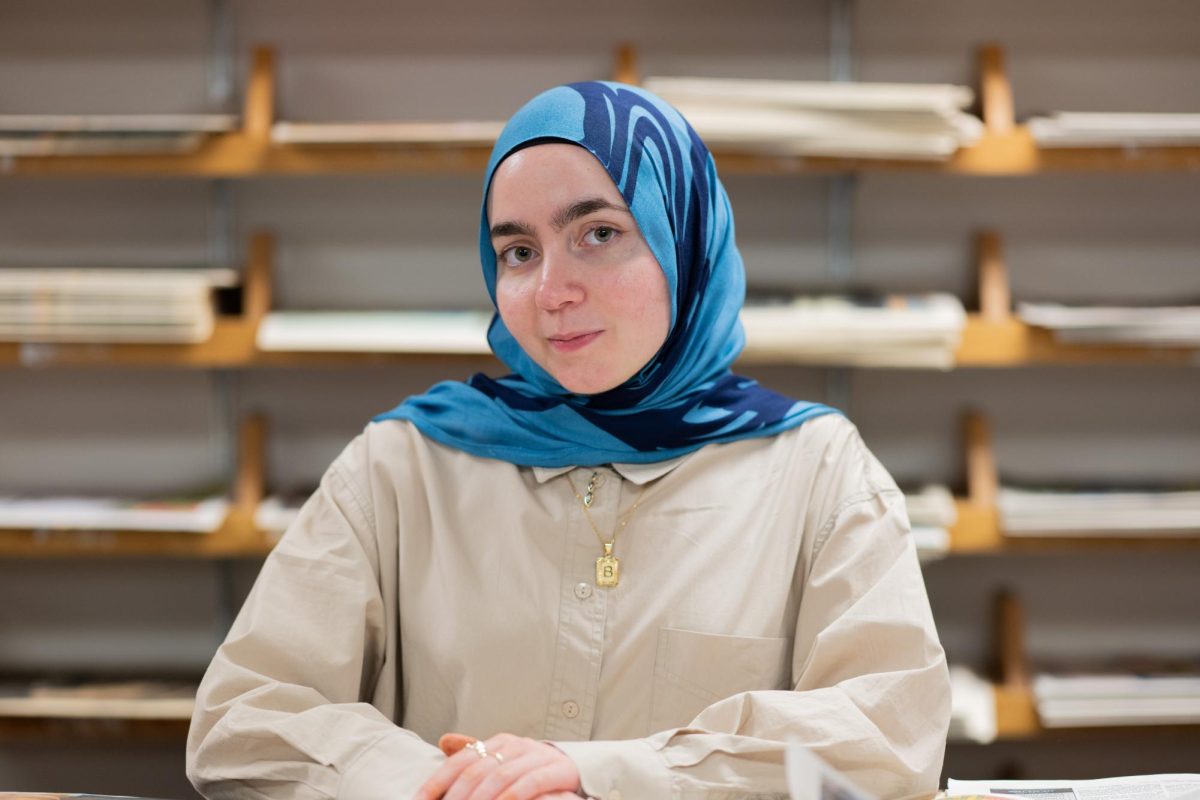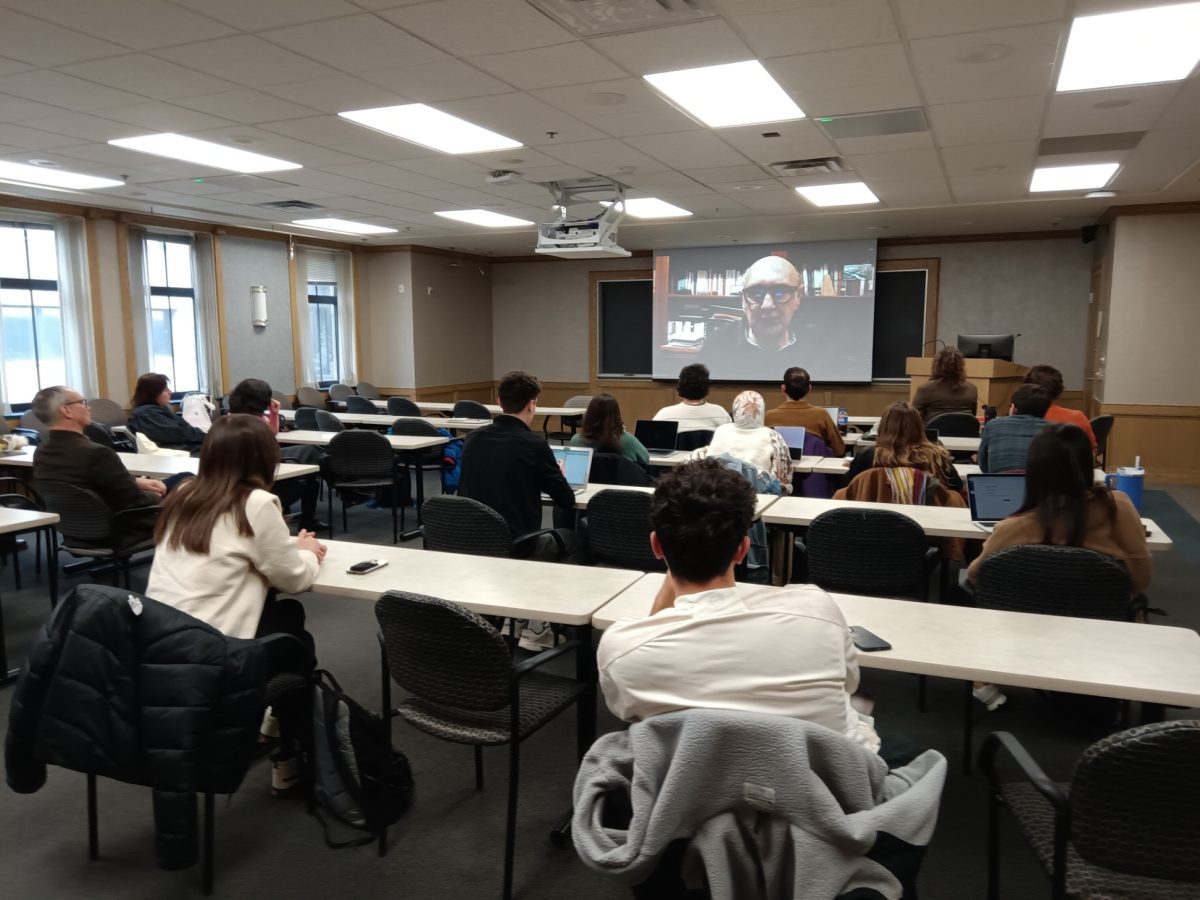As a historian of the Fosse Ardeatine massacre, Alessandro Portelli knows the difficulty of recounting trauma. Hearing emotional stories served as a fundamental challenge while writing his book “The Order Is Carried Out,” which collected oral histories of people affected by the massacre.
“It’s not always easy to put trauma into words,” Portelli said. “And here I was, challenging people to find the right words to describe what happened.”
Published in 2003 and an important work of scholarship on the event, Portelli talked about his book during an event on Monday afternoon held in person at Sennott Square and over Zoom. The talk commemorated 80 years since the massacre, which occurred in a cave outside Rome on March 24, 1944, when 335 Italians were killed by German troops during World War II.
Portelli said his book helped clarify the exact timeline of events that unfolded prior to the massacre, and it also served as a voice for the event’s survivors and their families.
“The family members and survivors had often testified about what happened in 1944,” Portelli said. “But I was the first person that asked them about themselves — how they managed, survived, and coped.”
As all victims of the massacre were men, Portelli said his interviews with women helped chronicle the event’s effect on grieving family members.
“Most of the people that I talked to were women,” Portelli said. “They were the mothers of people who had been murdered in the massacre, and they bore the greatest burden of coping with the loss of their family.”
Portelli said for some interviewees, the discussions served as an outlet for their grief. He recalled one interview in which a man still found it difficult to talk about the massacre decades after it happened.
“He had a great career and a beautiful home, a very successful life,” Portelli said. “Within 30 seconds of starting the interview, he was weeping like a child.”
Portelli described another interview where a woman who lost her Jewish father was unaware of how many Jewish people were killed in the massacre.
“[The Nazis] killed over 70 Jewish people, and she was unaware of the fact,” Portelli said. “It turned out that her mother had never talked to her about the massacre.”
Portelli saw his work as a stepping stone in helping families reconcile with their long-held grief from the massacre.
“She asked me to do an interview, and she said later that it was a rehearsal for finally talking to her children,” Portelli said. “I think the interview helped them finally deal with the trauma of losing a loved one.”
Portelli said at first, Italians heavily mourned the massacre.
“The entire community was wounded, so there was a lot of solidarity towards this,” Portelli said.
Once the occupation of Rome ended in June of 1944, however, he said mourning took a backseat to returning to daily life, leaving many families with suppressed grief.
“After nine months of occupation, suddenly the war was over and the people were beginning to live life again,” Portelli said. “People were unable to share in mourning in the streets.”
In deciding the arc of his narrative, Portelli said he allowed the victims of the massacre to tell their own stories, leaving the reader to decide their views.
“I tried to convey as much emotion as possible by using the least emotional approach I could,” Portelli said. “I just opened up space for people to decide on their own.”
Pitt Italian professor Rachel Love agreed that Portelli relied on the testimonies of victims to advance the talk.
“The testimonies themselves are so powerful and moving that [Portelli] in some ways stepped aside and let them convey the feelings,” Love said. “It’s also a history of very powerful feelings of grief, loss and survival.”
Love also felt impacted by Portelli’s stories of children reflecting on their parents’ grief from the event.
“There were very powerful moments where children talk about their mothers starting to cry decades later because they didn’t have time to cry before,” Love said.
Danny Turillo, a master’s student in Italian, appreciated Portelli’s idea that people have differing recollections of the massacre based on conflicting memories.
“The emphasis on the potential partiality of any kind of historical memory was very strongly emphasized and something that I think was very fascinating,” Turillo said. “I think that’s important for understanding historic memory as a whole.”
Portelli said while his book was a scholarly work, it also helped people better realize and accept what happened at the massacre, which he sees as its most important result.
“I was just telling what happened,” Portelli said. “I would say that most people took this opportunity to come to terms with what happened to them and what they had become.”
As an oral historian, Portelli knows that in chronicling the perspectives of others, he is also exposing the public to memories of people victimized by the massacre, a goal he finds important.
“Leaving this event, we can think about how oral history and looking at the margins of these stories can really reveal contested memories, contested histories and memories that have been denied,” Portelli said.



